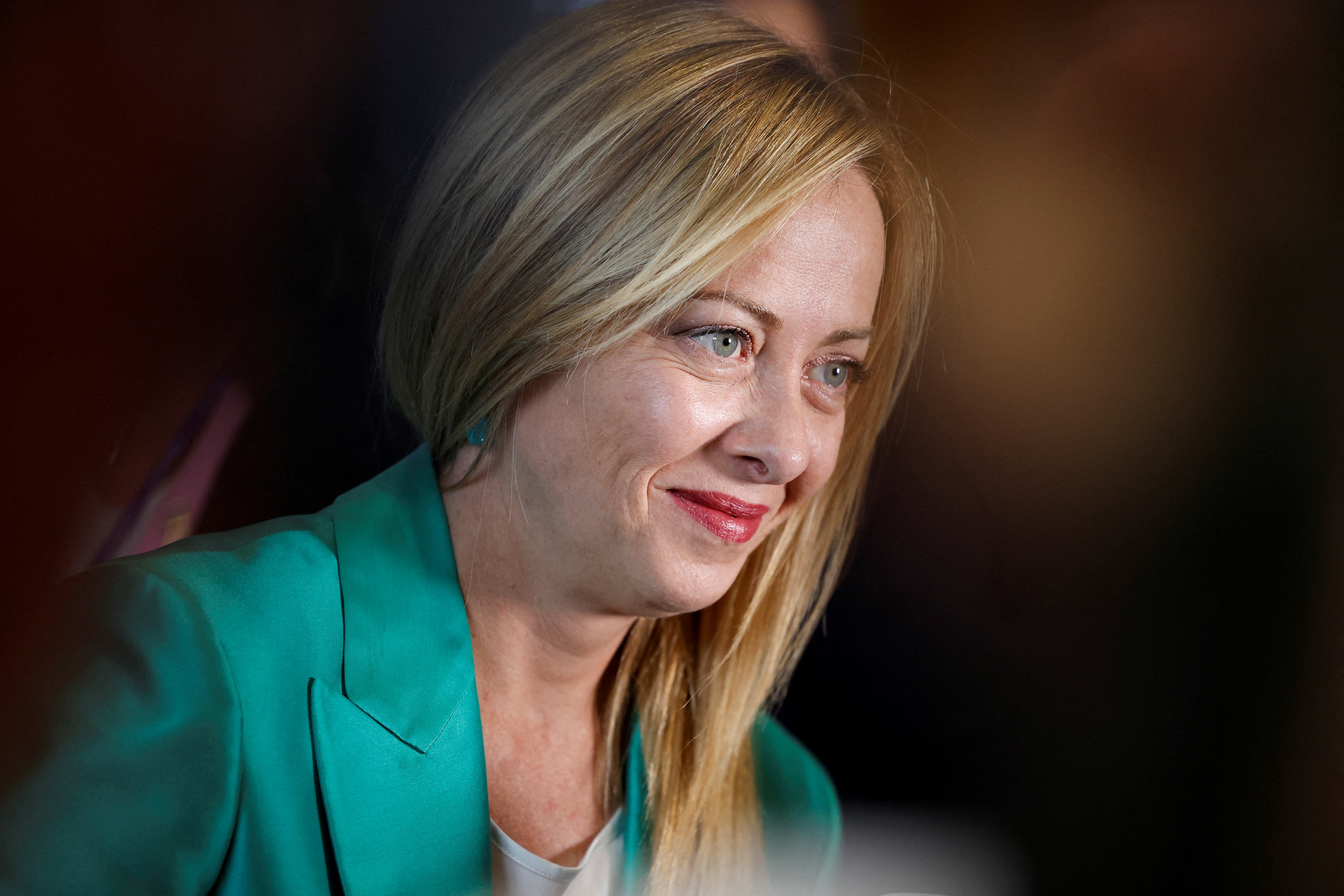
Italy’s Prime Minister Giorgia Meloni reacts during an informal meeting of European heads of state or government in Granada, Spain on October 6, 2023. REUTERS/Juan Medina/File Photo Get license rights
ROME, Oct 22 (Reuters) – Weak economic growth and high interest on the country’s huge debt are key issues facing Italian Prime Minister Giorgia Meloni after her first year in power. Partner.
Meloni’s coalition, the first in Italy’s history to be led by a woman, took office a year ago after an election victory and will soon pass the 14-month average post-war term for Italian governments.
Meloni’s Brothers of Italy party found its roots in the post-fascist Italian Social Movement (MSI), making it the country’s most right-wing party since wartime dictator Benito Mussolini.
Nevertheless, Meloni, 46, has promised to assuage foreign concerns about possible extremism, build good relations with allies by maintaining a strong pro-Western, EU-friendly stance and firm support for Ukraine in its war with Russia.
At home, he courted his right-wing grassroots to defend the traditional family, preserve Italy’s cultural heritage, and prevent the influx of immigrants.
„We have worked tirelessly to repay the trust and prove with facts that it is possible to create a different Italy,” he said in a video message this week.
However, the economic recovery from the COVID-19 pandemic has stalled, with GDP contracting 0.4% in the second quarter, and analysts predict Italian growth will be the weakest in the euro zone next year.
This makes it difficult for Meloni to fulfill his tax cut promises and makes Italy’s debt equal to 140% of national product.
„Economics is probably the hardest subject. The government has limited margins to operate,” said Valentina Meliciani, professor of economics at LUISS University in Rome.
Meloni last week marked the first of several reviews of Italy’s debt, when S&P Global Ratings affirmed the country’s BBB rating with a stable outlook.
However, the prevailing view among analysts is that rating agencies will downgrade Rome’s outlook while avoiding an outright downgrade.
Meloni also has personal problems. She announced her separation from her longtime partner, TV host Andrea Giambruno, on Friday.
Tax reductions
This month the government approved a 2024 budget with about 24 billion euros ($25.3 billion) in tax cuts and increased spending.
The budget did not impress investors, and exacerbated a long-term rise in Italian bond spreads.
The gap between yields on Italian 10-year bonds and German equivalents hovers around 2 percentage points (200 basis points), much higher than in other eurozone countries.
Meliciani said Italy’s hopes of reviving the economy and reducing debt depended strongly on the effective implementation of investment plans financed by EU post-Covid funds.
So far Rome has struggled to meet Brussels’ policy criteria and spend the money it receives.
On the international front, as well as his support for Ukraine, Maloney has avoided a clash with Brussels despite his Eurosceptic past.
Although she was unable to stop the influx of migrants, she made the call to protest a naval blockade to prevent boats from leaving North Africa.
Visits to Italy’s beaches so far in 2023 have risen to more than 140,000, more than double the same period last year.
„We expected Italy to be more difficult (on immigration) at the EU level, but overall we saw a conciliatory spirit, they are trying to find a common way,” said former foreign minister Enzo Movero Milanesi.
commanding position
At home Maloney had so far avoided the domestic political turmoil that had plagued so many of his predecessors.
A divided opposition helped him tighten his grip on power and keep his party at the top of the polls, with nearly 30% of voters supporting the 5-Star Movement, 18.5% for the center-left Democratic Party (PD) and 17% for Mavi.
His party dominates its coalition partners, the League and Forza Italia, with their combined score below 20%.
Analysts believe that a portion of center-right voters switched to Meloni from the other two parties, and that switching back is unlikely to shake the balance of power within the coalition.
„Meloni came after a decade of political instability and voters floating across the party spectrum. The country is now tired of it,” said historian and political expert Giovanni Orsina. ($1 = 0.9476 euros)
Reporting by Angelo Amante and Giselda Vagnoni, Editing by Gavin Jones and Alex Richardson
Our Standards: Thomson Reuters Trust Principles.

„Oddany rozwiązywacz problemów. Przyjazny hipsterom praktykant bekonu. Miłośnik kawy. Nieuleczalny introwertyk. Student.
